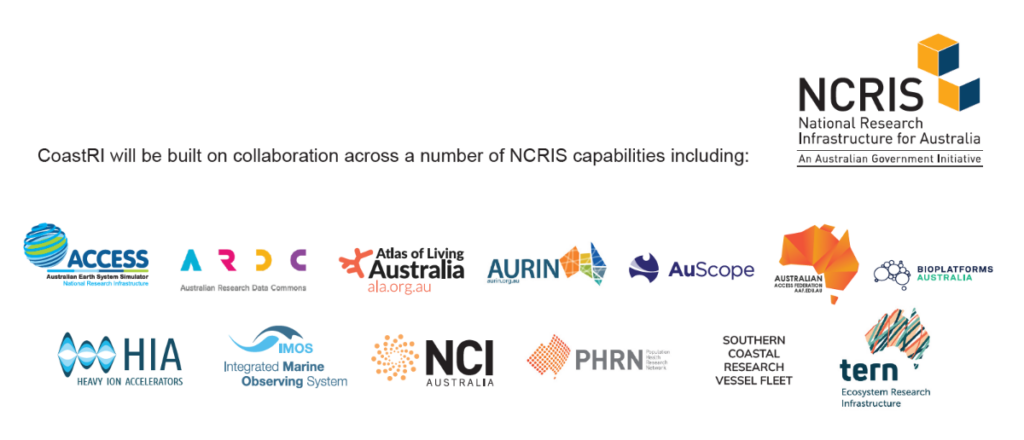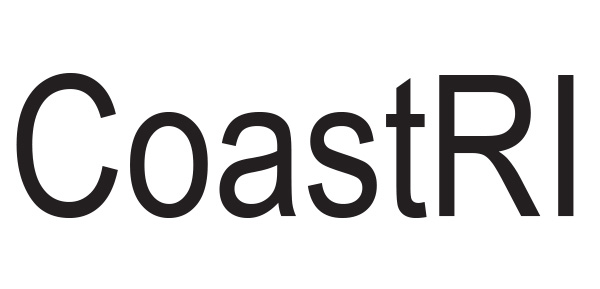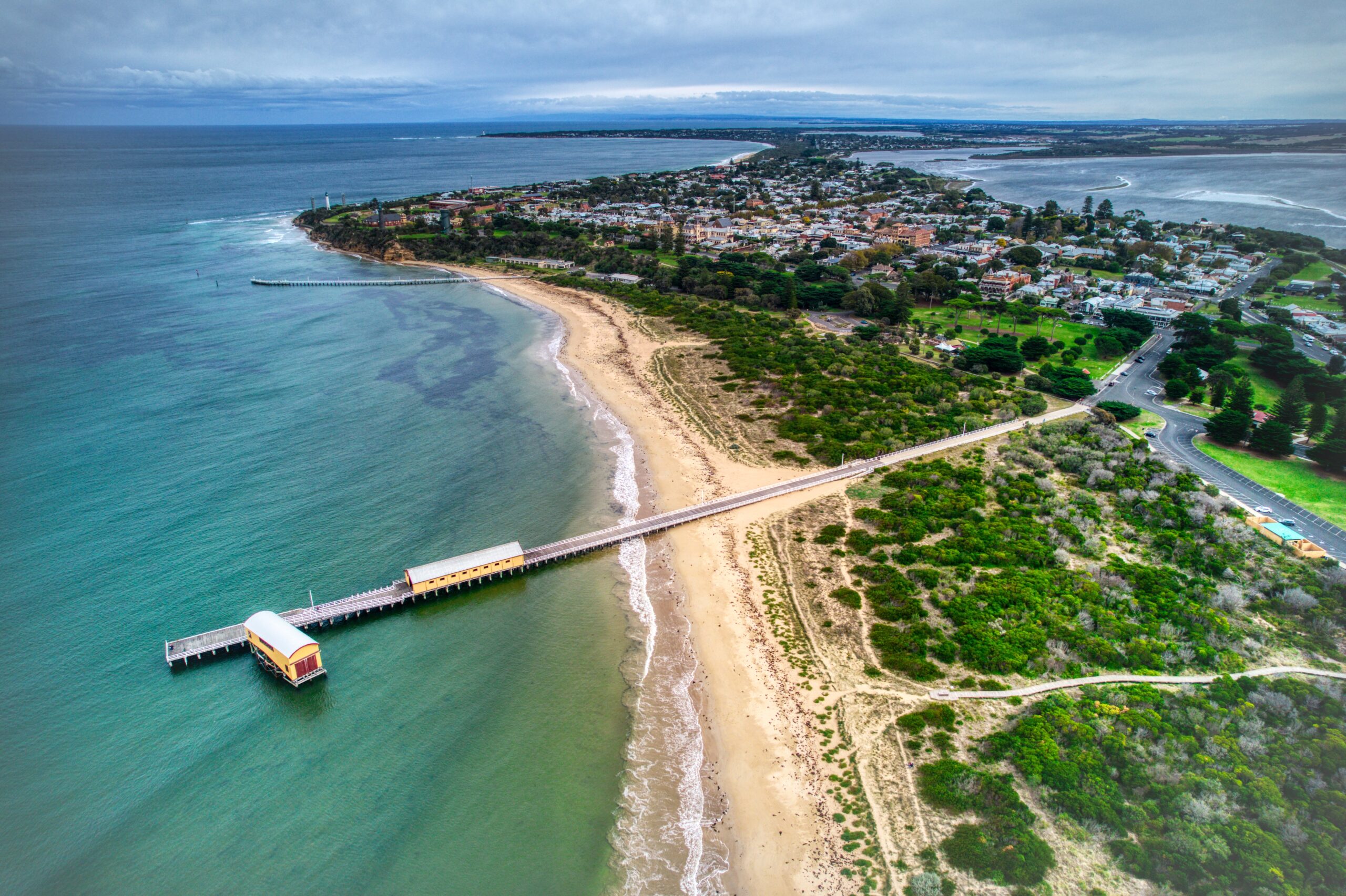We’re excited to share the latest progress of the CoastRI initiative with you. Your active involvement and valuable feedback through our consultation activities have been instrumental in shaping the scope of our initiative.
Thank you for your continued support.
Our objective is to gather comprehensive and integrated scientific data from diverse sources, enabling us to better understand, predict, and address the opportunities and imminent risks facing Australia’s coast for all peoples.
Based on the increasing rate of coastal change and risk to coastal communities and infrastructure, a consortium of capabilities within Australia’s National Collaborative Research Infrastructure Strategy (NCRIS) is working to develop national coastal research infrastructure – CoastRI. This initiative is proposed to achieve a step-change advance in Environment and Climate as recommended in the 2021 National Research Infrastructure Roadmap.
The development of CoastRI is based on several principles:
- Integrate a suite of infrastructures to deliver a coast-focused initiative to meet stakeholder and end-user needs;
- Identify areas where research infrastructure can fill gaps and/or value-add to existing programs, avoiding duplication or displacement of existing efforts;
- Operate an integrated and coordinated initiative to harmonise new and existing coastal observation and research efforts;
- Through combining capability and developing new activities, deliver a measurable step-change advance for research on Australia’s coasts.
CoastRI is designed to serve as a foundation for additional value-adding observing and data collection activities, research activities, co-investment, and the leveraging of collective efforts to further understand and adapt to coastal change in Australia.
CoastRI consultation approach
Two levels of consultation were conducted to explore the research, federal, state and local government, industry, and First Nations coastal observation, data, and modelling needs to help define the scope of CoastRI:
- Initial online survey and directed consultation with key end-users (April 2023). A summary of the results can be found here.
- Direct consultation with end-users including face-to-face meetings, workshops, and focused virtual meetings (April 2023 – March 2024).
The consultations aimed to identify local capabilities, priority topics and regions, observation and data gaps and needs, as well as opportunities for value-adding, knowledge and data sharing, integration, co-investment, and leverage. These insights underpinned and informed the themes and activities included in the CoastRI program description.
Consultation outcomes
The consultation process identified a range of end-user needs, which have been summarised into national-scale themes that CoastRI will work to address. These encompass eight priority themes addressing both physical and digital infrastructure needs as shown below. The identified themes align well with the capacity and capability within the NCRIS consortium.
It should be noted that it is not intended for CoastRI to deliver all the identified needs by establishing new infrastructure. Instead, CoastRI will leverage existing capabilities where possible, and may also serve as an aggregator of existing data to enhance access and use by a broader suite of users. It is important to emphasise that First Nations inclusion and co-design are fundamental to the entire initiative and not restricted to any specific theme as indicated in Figure 1. Furthermore, data stewardship is a fundamental aspect of CoastRI’s success and is considered an underpinning element rather than a distinct theme.

CoastRI scope exclusions
Given the wide range of end-users, it is important to recognise that CoastRI cannot comprehensively address all coastal research infrastructure needs. Some areas of identified need are already delivered by state government programs, industry operations, or organisations outside NCRIS. Additionally, some identified needs are too large or complex to be managed within the NCRIS consortium and are thus considered out of scope. These include observations, data collection, and modelling related to bathymetry, groundwater, sediment budgets, and catchment runoff/river flow.
Next steps
NCRIS consortium members are currently working on finalising the scope of CoastRI, prioritising activities for inclusion in the CoastRI initiative, establishing a high-level budget for the overall program of work, and progressing this concept as part of a step-change advance in the National Research Infrastructure Roadmap Environment and Climate Challenge. The aim of CoastRI is to fill a major gap in the Nation’s future strategy by building research capacity in the step change area of ‘World-leading environmental and climate infrastructure to underpin Australia’s national adaptation strategy’.
Get in touch
Thank you once again for your commitment to CoastRI. Together, we are making significant strides toward a sustainable and resilient future for Australian coastlines. If you have any questions, please get in touch with the CoastRI team.
Daniel Ierodiaconou, Lead Scientist
[email protected]
Rebecca Zitoun, Science Engagement Officer
[email protected]
NCRIS Consortium
CoastRI is led by the Integrated Marine Observing System (IMOS) and builds on collaboration across 13 NCRIS capabilities. The coordination is facilitated through the National Earth and Environmental Science Facilities Forum (NEESFF), serving as a platform for the integration of NCRIS capabilities engaged in this initiative. Oversight of initiative strategy, delivery, direction, design, and progress is provided by an Advisory Board, an independent Science Advisory Committee, and a committee of NCRIS and other Directors (NEEESFF).


